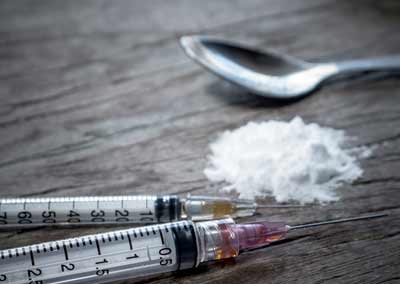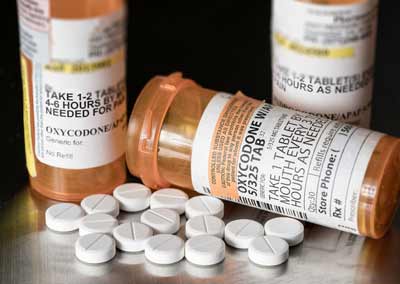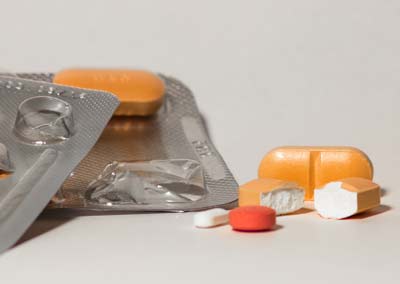
Trazodone Abuse and Addiction Treatment
Trazodone is a common antidepressant and sleep aid that can help treat depression, acute insomnia, and anxiety. It can also be used in certain addiction treatments to aid in alcohol dependency, substance misuse, and a range of other common psychological and behavioral health issues.
Unfortunately, this prescription drug has significant risks when misused and abused. Let’s dive into the risks, symptoms, and treatment options available to those seeking addiction treatment for trazodone drug misuse.
If you or a loved one is experiencing trazodone addiction, contact our admissions team today to start your journey to recovery. We can help you assess the level of care you need to maintain long-term sobriety or help you support a loved one’s addiction recovery healthily.
What Is Trazodone?
Although trazodone does not produce a euphoric high, it is abusable for the calming effects or cognitive impairment it creates. Is trazodone habit forming? Unfortunately, it can be for those with a history of addiction. The drug creates a tolerance so that more is needed to produce the same effects.
While trazodone is not a commonly abused drug[1] like opioids or benzodiazepines, the substance has the potential for abuse. Typically, people who abuse trazodone recreationally will mix it with other substances like alcohol to create a more potent high.
Understanding Trazodone Addiction
Trazadone is a prescription antidepressant medication. Classified as a serotonin antagonist reuptake inhibitor (SARI), trazodone blocks serotonin receptors in the brain and stops neurons from reabsorbing serotonin.
The result is higher serotonin levels in the brain, which helps prevent the low moods of depression or the high moods of anxiety.
Lower doses of trazodone are also sometimes used as a sleep aid. In many cases, insomnia can be a lingering effect of depression, which is why trazodone can help people regain their energy and not fall back into depression.
Is Trazodone Addictive?
Trazodone is a long-term medication that is not inherently dangerous to take. However, taking the prescription drug for months and years could lead to dependency. However, dependency is not the same as addiction.
While there is debate on whether or not antidepressants are addictive, people can still experience side effects and withdrawals while taking trazodone. In extreme cases, those who have a dependency or addiction to trazodone will go to great lengths to get more or purchase it illegally.
Withdrawal and relapse are often characteristics of an addiction disorder. Luckily, prescription drug addiction treatment is available for those looking to live a healthy life without dependency on medication.
Who’s at Risk for Trazodone Addiction?
Prescription medication abuse and addiction are becoming more common[2], especially for those who have a family or personal history of substance abuse.
Someone who is at risk for developing a trazodone addiction include:
- Individuals who use prescription medications without medicinal reasons
- People who take prescriptions without the supervision of a medical professional
- Those with a history of substance abuse disorders
- Anyone who mixes prescription medication with a secondary drug of abuse
- Individuals who abuse trazodone for more than 6-8 weeks
If you or a loved one is misusing trazodone, they are at risk for developing an addiction to the prescription medication. It is important to reach out for help when ready to seek treatment to overcome addiction and prevent relapse.
Trazodone: Side Effects, Withdrawal Symptoms, and Overdose
Trazodone Side Effects
There are a few trazodone side effects to be aware of.
The best indication of trazodone addiction is when someone is using the drug despite physical, mental, or social consequences. However, since trazodone increases serotonin, common signs of trazodone abuse are all linked to serotonin syndrome[3] or serotonin toxicity.
If someone takes too much trazodone for a prolonged period, more severe signs can appear in the user. It is important to see a medical professional immediately if you notice any of those signs, and seek help with an addiction treatment center near you.
Trazodone Withdrawal Symptoms
Because the prescription drug can modify the amount of serotonin in the brain, suddenly stopping trazodone use can cause antidepressant discontinuation syndrome [4] and other tazodone withdrawal symptoms.
Although trazodone withdrawals are often not life-threatening, they should be taken seriously.
Signs of Trazodone Overdose
Most trazodone overdoses are accidental, with people taking too much for faster relief from depression or anxiety. A typical dose of trazodone ranges from 50 to 100mg. However, it is possible to overdose on lower doses.
Unfortunately, any type of overdose on trazodone can be fatal without treatment.
Because trazodone is often misused with other substances like alcohol, barbiturates, or sedatives like Valium, overdosing could be fatal.
FAQ on Trazodon Abuse
- Is Trazodone habit forming Trazodone can be habit-forming when taken for long periods. However, dependency and addiction are not the same thing. If you believe you are misusing or addicted to trazodone, talk to your doctor or seek help from a trazodone treatment center near me.
- What happens if you snort trazodone? Some individuals may snort trazodone to receive a high concentration of the drug quickly. However, the effects of snorting trazodone can cause intense effects and possibly life-threatening risks. Snorting trazodone can also lead to issues with one’s nasal passages because the medication was not designed to be snorted.
- Is trazodone a narcotic? No. Trazodone is a prescription antidepressant used to treat anxiety, insomnia, and depressive disorders. Trazodone is also not an opioid.
Find Trazodone Addiction Treatment in Portland
If you or someone you care for is experiencing trazodone addiction, it is essential to find help to prevent complications.
Tree House Recovery knows that addiction is complex, but recovery is possible with the right support and treatment plan. Call today for an assessment and discover the best treatment plan that promotes lifetime recovery and relapse prevention skills.
Inpatient:

Detox
Trazodone works by changing brain chemistry and can cause uncomfortable side effects if stopped suddenly. When transitioning off Trazodone, doctors typically prescribe smaller, more infrequent doses to help the brain gradually re-adjust.

Residential
Residential rehab addresses addictions caused by one or more serious pre-existing mental health conditions, usually at live-in facilities.
Outpatient:

Partial Hospitalization
PHP is a high level of care designed to treat the cause of a person’s addiction so that they can live independently from substances after finishing treatment.

Intensive
Outpatient
IOP is a mid-level of care designed to follow up on and reinforce the habits learned in PHP. It can also be a starting point for milder addictions.

Aftercare:
Aftercare is a low level of care for mild substance abuse or rehab program graduates featuring weekly sessions with a therapist.
Tree House Recovery Treatment for Drug Abuse:
Tree House Recovery is about establishing sobriety over the long term. Our program provides an individualized and holistic recovery experience. We focus on teaching important life skills so that you can overcome your negative habits and replace them with healthy hobbies and coping mechanisms. Our treatment methods include talk therapy, yoga, fitness therapy, and writing therapy so that you can find the path to recovery that works for you.
- Connect: The opposite of sobriety is isolation. During treatment, you build strong bonds with live-in teammates that will last long after treatment.
- Get Strong: Learn to use daily exercise as a tool to reduce cravings and protect your sobriety.
- Build A Better Perspective: Drugs are not addictive chemicals. They create addictive feelings. Learn how to recreate those feelings without substances.
Contact Tree House Recovery PDX
Tree House Recovery in Portland, Oregon is a treatment center for men struggling with addiction. We are equipped to treat addictions to a range of substances including Trazodone as well as many other drugs. To find out if recovery with the Tree House team is the right fit for you or your loved one, don’t hesitate to reach out today. Call our admissions team as soon as you are ready at (503) 850-2474.
Sources:
-
Rush, C. R., Baker, R. W., & Wright, K. (1999). Acute behavioral effects and abuse potential of trazodone, zolpidem and triazolam in humans. Psychopharmacology, 144(3), 220–233. https://doi.org/10.1007/s002130050997
-
Prescription drug abuse statistics. NCDAS. (2024b, May 2). https://drugabusestatistics.org/prescription-drug-abuse-statistics/#:~:text=52%20million%20or%2018.4%25%20of,over%20the%20age%20of%2012.
-
Volpi-Abadie, J., Kaye, A. M., & Kaye, A. D. (2013). Serotonin syndrome. Ochsner journal, 13(4), 533–540.
-
Gabriel, M., & Sharma, V. (2017). Antidepressant discontinuation syndrome. CMAJ : Canadian Medical Association journal = journal de l'Association medicale canadienne, 189(21), E747. https://doi.org/10.1503/cmaj.160991





